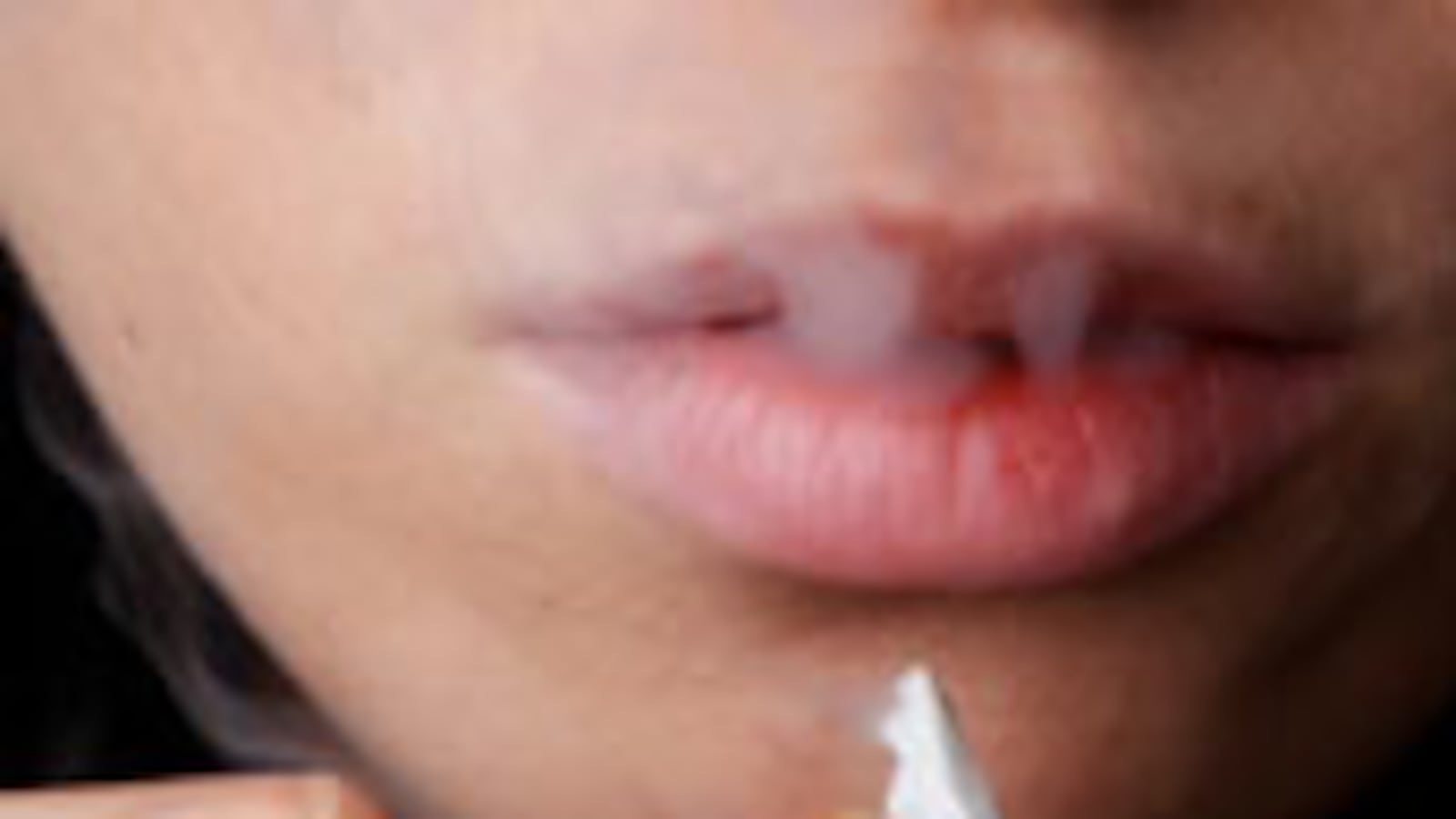
“I trust marijuana,” says Craig X Rubin, outspoken pot-legalization advocate and marijuana consultant to the Showtime series, Weeds. “I don’t trust K2.”
It’s not often that Rubin finds himself in the same camp as conservative lawmakers, but that’s where he landed this month when a drug called K2 found its way into the national spotlight. An herbal mixture sprayed with a synthetic drug that is supposed to approximate the effects of marijuana, K2—legal and available online—has local legislatures racing to criminalize it.
"Why would you trust chemical corporations to spray some mystery substance on some mystery plants?” asks one pot smoker.
And in a rare bit of synergy, pot smokers seem to agree that the new drug offers few positives for all of its risks. For people who like their drugs organic and chemical free, K2 is the narco equivalent of a high-fructose, down-market energy drink.
"I would never smoke mystery shit—are people aware of what they're buying?” asks a film and television producer in Los Angeles. “Why would you smoke some synthetic substance when one of the most appealing factors of marijuana is that it is all natural?”
Rubin agrees, noting that “while the herbs in these mixes might be legal, that doesn’t mean that can’t kill you. Why would you trust chemical corporations to spray some mystery substance on some mystery plants?”
“Mystery” is a word that pops up often when pot smokers talk about K2, and indeed, the manufacturers and distributors of drugs like K2 are, not surprisingly, shrouded in secrecy. Rubin says no one really knows who they are. “These are real quiet individuals that are just trying to make some cash, and they’re not going to brag about it.” Bouncing Bear Botanicals, a company that was raided by officials after news reports revealed it as a purveyor of K2 (despite the fact that the substance was not yet illegal), was “not interested” in providing comment, and emails to K2-Incense.com received no response.
How dangerous K2 actually is remains murky. The drug became news when it reportedly spurred 59 calls to U.S. poison centers since the beginning of this month. Then a toxicologist in Missouri announced he’d seen thirty teenagers in six weeks flow through local emergency rooms, tripping on the drug. On March 10, Kansas became the first state to ban the substance, and similar bills in other states are working their way toward law.
Unfolding against the backdrop of California’s bid to legalize and tax marijuana, the ballot initiative for which was approved on Wednesday, the K2 madness has illuminated America’s schizophrenic drug policy. If the reports about some of K2’s effects are true—hallucinations, severe agitation, elevated heart rate and blood pressure, vomiting and, in some cases, tremors and seizures, according to the Missouri doctor—it appears to be far more harmful than weed.
The science of JWH-018, the synthetic chemical sprayed onto most of these “herbal blends,” has been around for about 15 years. First synthesized by Clemson University chemist and professor John W. Huffman (hence the “JWH”), the chemical was created to see if the therapeutic effects of THC, the active ingredient in marijuana, could be mimicked. Eventually, the recipe was stolen and the substance began turning up in incense that supposedly produced a calming effect in those who enjoyed it, mostly in Canada and across Europe. It wasn’t long, of course, before someone decided to smoke it.
The science behind the psychotropic effects of the JWH-018 compound is not yet complete. JWH-018 appears to excite the same CB1 and CB2 receptors that THC does. Unlike natural weed, however, the synthesized version is four times more potent when binding with CB1, and seems to have a three-fold preference for the CB1 over the CB2 receptor. This is relevant because it is the CB2 receptor that gives marijuana its medical properties—it affects pain and inflammation levels in the body. It thus appears as though K2 may provide a potent high, it lacks the medicinal properties that helped legitimize the pot-legalization movement.
For all these reasons, it’s hard to imagine that K2 would exist if it weren’t for marijuana being illegal. One 23-year-old former drug user notes that someone would only choose a “fake” alternative, even a legal one, “if it was cheaper, and worked as well or better than the illegal stuff.” For drug users of most levels, she noted, “Cost, effectiveness, and availability are far more important than the legality.”
It should be noted that fake marijuana is nothing new. “‘Fake pot’ has appeared in High Times magazine for over 20 years,” Rubin says. “What’s different is the whole chemical side of it—but the marketing engines, the publicity strategies are always the same.”
Even family-friendly Amazon.com sells a handful of “premium incense” blends through its Marketplace sellers. Incense has always served as a smokescreen for substances that are not just lit in the corner of a room, but also rolled-up in a sheet of Zig-Zag. An herbal mix called Passion Flower is the number one seller in the “Everything Else” category on Amazon, along with “tobacco” pipes, rolling paper, and bongs. Another product, called Blueberry Haze, is marketed as “the new standard in legal herbal hybrid buds.” The product description reads, “This isn’t the haze your [sic] gonna want to share with your friend once you smoke it.”
Many of the reviews for the “Premium Blend Smoke Herbal Incense” mentioned K2 by name, and one reviewer even equates the two. “I have bought K2 Summit in the past and I felt it was too strong for my liking (and a little pricey). I recently tried the Premium Blend K2 and I was pleasantly surprised by it's effects."
K2 has spurred typical posturing on the part of politicians. (Missouri State Rep. Ward Franz’s statement, “We don’t know much about this, but it’s going to end up killing somebody,” is, in itself, an oxymoron.) But the real reason that K2 has caught people’s interest is because of how reflects back on regular marijuana, or what dedicated smokers refer to as “God’s herb.”
The DEA, despite its haphazard raids on clinics in states where medical marijuana is legal, is fighting a battle it and everyone else knows it will never win. And since marijuana and cannabinoid substances can be patented (the federal government already owns a few), some are musing that marijuana could be America’s next big agricultural boom. But for now it’s clear that K2 or any “alternative marijuana” is not going to overtake the real thing. As Rubin notes, “I’m not going to trust chemical corporations to spray unknown plants to give me a ‘weed-like’ effect when I can have real weed. This ‘alternative herbal weed’ isn’t herbal at all, and it’s hardly an alternative.”
Kia Makarechi is an intern at The Daily Beast. He is a senior at UCLA, where he is the Senior Viewpoint Columnist for The Daily Bruin.






